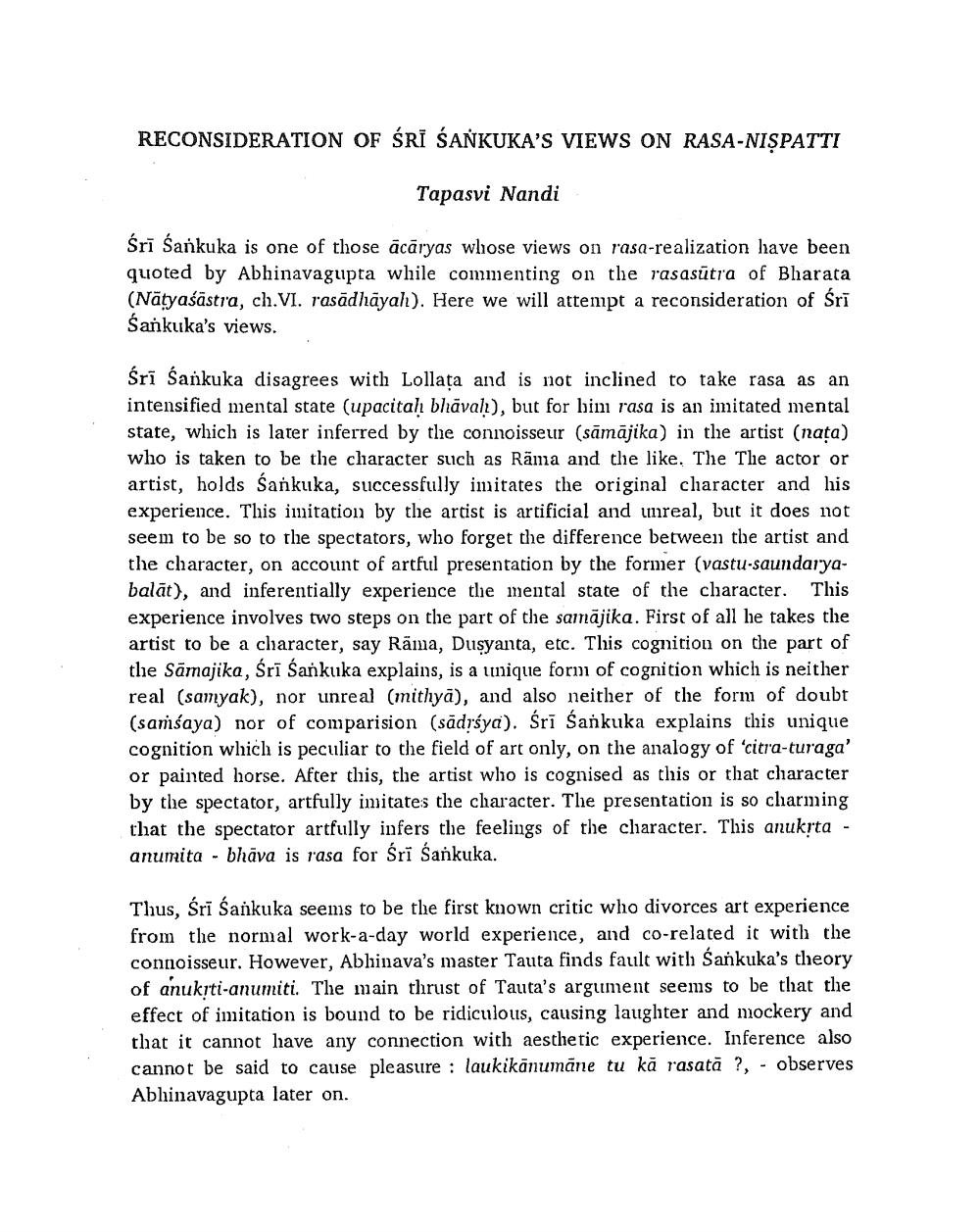________________
RECONSIDERATION OF ŚRI ŚANKUKA'S VIEWS ON RASA-NIŞPATTI
Tapasvi Nandi
Sri Sankuka is one of those ācāryas whose views on rasa-realization have been quoted by Abhinavagupta while commenting on the rasasūtra of Bharata (Nātyaśāstra, ch.VI. rasādhāyah). Here we will attempt a reconsideration of Sri Śankuka's views.
Śrī Sankuka disagrees with Lollata and is not inclined to take rasa as an intensified mental state (upacitah bhāvah), but for him rasa is an imitated mental state, which is later inferred by the connoisseur (sāmājika) in the artist (nata) who is taken to be the character such as Rāma and the like. The The actor or artist, holds Sankuka, successfully imitates the original character and his experience. This imitation by the artist is artificial and unreal, but it does not seem to be so to the spectators, who forget the difference between the artist and the character, on account of artful presentation by the former (vastu-saundaryabalāt), and inferentially experience the mental state of the character. This experience involves two steps on the part of the samājika. First of all he takes the artist to be a character, say Räma, Dusyanta, etc. This cognition on the part of the Sāmajika, Śrī Sankuka explains, is a unique form of cognition which is neither real (samyak), nor unreal (mithyā), and also neither of the form of doubt (samsaya) nor of comparision (sādrsya). Śrī Sankuka explains this unique cognition which is peculiar to the field of art only, on the analogy of 'citra-turaga' or painted horse. After this, the artist who is cognised as this or that character by the spectator, artfully imitates the character. The presentation is so charming that the spectator artfully infers the feelings of the character. This anukrta - anumita - bhāva is rasa for Sri Sankuka.
Thus, Sri Sankuka seems to be the first known critic who divorces art experience from the normal work-a-day world experience, and co-related it with the connoisseur. However, Abhinava's master Tauta finds fault with Sankuka's theory of anukiti-anumiti. The main thrust of Tauta's argument seems to be that the effect of imitation is bound to be ridiculous, causing laughter and mockery and that it cannot have any connection with aesthetic experience. Inference also cannot be said to cause pleasure : laukikānumāne tu kā rasatā ?, - observes Abhinavagupta later on.




